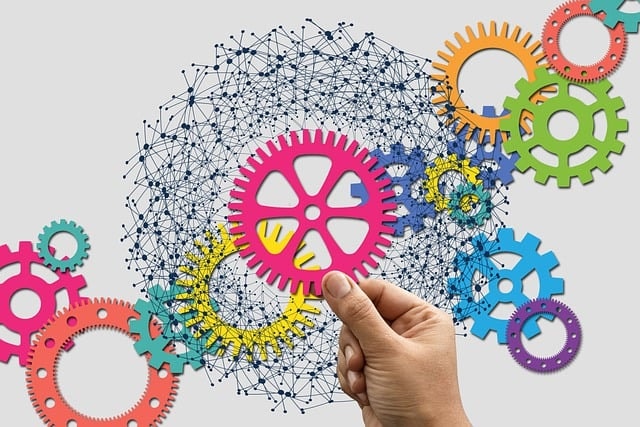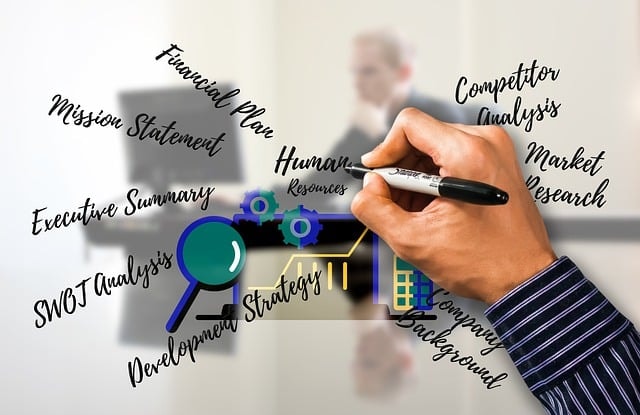Artificial Intelligence (AI) is not just a buzzword; it's a transformative force reshaping industries and redefining the job market. As we stand on the brink of a new era, it's crucial to understand which jobs AI will replace by 2030 and how this shift will impact our lives.
Key Takeaways:
- AI is set to replace jobs involving repetitive tasks and routine operations, such as data entry and customer service.
- While AI will automate certain roles, it will also create new opportunities requiring advanced skills and human creativity.
- Continuous learning and skills development are essential to stay ahead in an AI-driven job market.
The AI Revolution: A Double-Edged Sword
AI technologies are advancing at a breakneck pace, promising both opportunities and challenges. On one hand, AI tools can handle repetitive tasks with precision, freeing up human labor for more complex decision-making. On the other hand, this automation threatens to displace workers in roles that rely heavily on routine tasks.
Customer Service Representatives: The Frontline of Change
Customer service representatives are often the first point of contact for businesses. However, AI chatbots and virtual assistants are increasingly handling customer service inquiries. These AI systems can provide instant responses, analyze customer data, and offer solutions without human intervention.
While AI can efficiently manage routine inquiries, it lacks the human touch necessary for complex human relationships. Emotional intelligence and human interaction remain irreplaceable, ensuring that customer service representatives will still play a vital role in handling nuanced situations.

Data Entry Clerks: A Vanishing Act
Data entry clerks are among the most affected by AI automation. AI systems can process vast amounts of data quickly and accurately, reducing the need for human involvement in data entry tasks. Automated systems can handle data analysis, ensuring accuracy and efficiency.
However, the shift towards AI-driven data management opens up opportunities for data analysts who can interpret and leverage data insights. This transition highlights the importance of developing technical skills and embracing lifelong learning to stay relevant in the job market.
Truck Drivers: On the Road to Automation
The transportation industry is on the cusp of a revolution, with AI technologies paving the way for automated vehicles. Self-driving trucks promise to reduce labor costs and increase efficiency, potentially displacing truck drivers.
Despite these advancements, human judgment and oversight remain crucial, especially in complex decision-making scenarios. The foreseeable future will likely see human drivers working alongside AI, ensuring safety and reliability on the roads.
Healthcare Workers: A Collaborative Future
AI is making significant strides in healthcare, from analyzing medical images to automating tasks. However, AI cannot replace the empathy and critical thinking that healthcare workers provide. Human capabilities are essential in diagnosing and treating patients, ensuring that AI serves as a tool to augment human capabilities rather than replace them.
The collaboration between AI and healthcare professionals highlights the need for continuous learning and skills development. As AI technologies evolve, healthcare workers must adapt to new tools and techniques to enhance patient care.
Administrative Assistants: A Shift in Responsibilities
Administrative assistants perform a variety of tasks, many of which are ripe for automation. AI solutions can manage scheduling, handle routine communications, and organize data, reducing the need for human intervention in these areas.
However, the role of administrative assistants is evolving. As AI takes over routine tasks, these professionals can focus on more strategic responsibilities, such as project management and problem-solving. This shift underscores the importance of developing new skills and embracing change in the workplace.

Legal Professionals: Navigating a New Landscape
AI is transforming the legal industry by automating tasks such as analyzing legal documents and conducting market research. AI tools can quickly process vast amounts of information, providing valuable insights and reducing the time spent on routine tasks.
Despite these advancements, human qualities such as critical thinking and emotional intelligence remain essential in legal practice. Legal professionals must adapt to the changing job market by developing new skills and leveraging AI to enhance their capabilities.
Data Analysts: The Rise of a New Era
As AI takes over data entry tasks, the demand for data analysts is on the rise. These professionals play a crucial role in interpreting data insights and making informed decisions. AI development has created a need for individuals who can bridge the gap between technology and business strategy.
Data analysts must possess strong technical skills and a deep understanding of AI systems. Continuous learning and skills development are essential to stay ahead in this rapidly changing field.
Voice Assistants: The New Norm
Voice assistants like Siri and Alexa have become household names, revolutionizing the way we interact with technology. These AI systems can perform a wide range of tasks, from setting reminders to controlling smart home devices.
While voice assistants offer convenience, they also raise questions about privacy and security. As AI technologies continue to evolve, it's crucial to address these concerns and ensure that human involvement remains a priority.
AI Ethics: Balancing Innovation and Responsibility
The rise of AI has sparked debates about ethics and responsibility. As AI systems become more integrated into our lives, it's essential to consider the ethical implications of their use. AI ethics involves ensuring that AI technologies are developed and deployed responsibly, with a focus on human welfare.
Balancing innovation with ethical considerations is crucial to building trust in AI systems. This requires collaboration between AI developers, policymakers, and society to create a future where AI enhances human capabilities without compromising our values.

Human-AI Collaboration: A New Paradigm
The future of work lies in collaboration between humans and AI. While AI can automate routine tasks, it cannot replace the creativity, empathy, and critical thinking that humans bring to the table. Human-AI collaboration involves leveraging AI tools to enhance human capabilities and drive innovation.
This new paradigm requires a shift in mindset, embracing AI as a partner rather than a threat. By working alongside AI, we can unlock new opportunities and create a more dynamic and resilient job market.
AI Training: Preparing for the Future
As AI technologies continue to evolve, the demand for AI training is on the rise. Individuals must develop new skills and adapt to the changing job market to stay competitive. AI training involves learning about AI systems, understanding their capabilities, and developing the technical skills needed to work with them.
Lifelong learning is essential in an AI-driven world. By embracing continuous learning and skills development, individuals can stay ahead of the curve and thrive in the future job market.
New Jobs: Opportunities on the Horizon
While AI will replace certain jobs, it will also create new opportunities. The rise of AI technologies has led to the emergence of new roles, such as AI specialists, data scientists, and machine learning engineers. These jobs require advanced technical skills and a deep understanding of AI systems.
The creation of new jobs highlights the importance of skills development and adaptability. By embracing change and developing new skills, individuals can seize the opportunities presented by AI and thrive in the future job market.
AI and Human Creativity: A Powerful Combination
AI technologies are powerful tools, but they cannot replicate human creativity. Creativity involves thinking outside the box, generating new ideas, and solving complex problems. AI can assist in these processes, but it cannot replace the unique insights and perspectives that humans bring.
The combination of AI and human creativity is a powerful force for innovation. By leveraging AI tools to enhance creativity, individuals can drive progress and create new opportunities in the job market.

AI in Mental Health: A Supportive Role
AI is making strides in mental health, offering tools to support diagnosis and treatment. AI systems can analyze data, identify patterns, and provide insights into mental health conditions. However, AI cannot replace the empathy and understanding that mental health professionals provide.
The role of AI in mental health is to augment human capabilities, providing support and enhancing care. This collaboration highlights the importance of human involvement in mental health and the need for continuous learning and skills development.
AI in Renewable Energy: Powering the Future
AI is playing a crucial role in the renewable energy sector, optimizing energy production and reducing costs. AI systems can analyze data, predict energy demand, and optimize energy distribution, enhancing efficiency and sustainability.
The integration of AI in renewable energy highlights the importance of technical skills and innovation. By embracing AI technologies, individuals can drive progress and create new opportunities in the renewable energy sector.
AI in Office Jobs: A New Dynamic
AI is transforming office jobs, automating routine tasks and enhancing productivity. AI tools can manage scheduling, handle communications, and organize data, freeing up time for more strategic responsibilities.
The shift towards AI-driven office environments highlights the importance of adaptability and skills development. By embracing AI technologies, individuals can enhance their capabilities and thrive in the changing job market.
AI in Education: Revolutionizing Learning Environments
The integration of AI in education is transforming traditional classrooms into dynamic learning environments. AI tools are being used to personalize learning experiences, catering to individual student needs and learning paces. For instance, AI-driven platforms can analyze student performance data to identify areas where they struggle, offering tailored resources to bridge knowledge gaps. This shift not only enhances educational outcomes but also prepares students for the AI-driven job market by fostering critical thinking and problem-solving skills. As AI technologies continue to evolve, educators are embracing these innovations to stay ahead in the ever-changing educational landscape.
Moreover, AI is playing a pivotal role in administrative tasks within educational institutions. Automated systems are streamlining processes such as enrollment, grading, and even responding to routine inquiries, allowing educators to focus more on teaching and less on paperwork. This automation reduces labor costs and increases efficiency, ultimately benefiting both students and staff. As AI continues to develop, its role in education will likely expand, offering new opportunities for lifelong learning and skills development. The World Economic Forum highlights that AI's impact on education is a testament to its potential to augment human capabilities and revolutionize how we learn.

AI in Agriculture: Cultivating a Sustainable Future
AI is sowing seeds of change in agriculture, offering innovative solutions to age-old farming challenges. By leveraging machine learning and data analysis, farmers can optimize crop yields, manage resources more efficiently, and reduce environmental impact. AI systems can predict weather patterns, monitor soil health, and even automate irrigation, ensuring that crops receive the right amount of water at the right time. This technological advancement not only boosts productivity but also supports sustainable farming practices, addressing global food security concerns.
Furthermore, AI technologies are enhancing human capabilities in agriculture by providing insights that were previously unattainable. Drones equipped with AI can survey large tracts of land, identifying pest infestations or nutrient deficiencies with pinpoint accuracy. This allows farmers to make informed decisions, reducing the need for chemical interventions and promoting eco-friendly practices. As AI continues to evolve, its integration into agriculture promises to create new jobs and opportunities, transforming the industry into a beacon of innovation and sustainability. The McKinsey Global Institute suggests that AI's role in agriculture is a prime example of how technology can augment human labor and drive positive change.

AI and Human Judgment: A Delicate Balance
AI systems are powerful tools, but they cannot replace human judgment. Human judgment involves making complex decisions, considering ethical implications, and balancing competing priorities. AI can assist in these processes, but it cannot replace the unique insights and perspectives that humans bring.
The balance between AI and human judgment is crucial to building trust in AI systems. By leveraging AI tools to enhance decision-making, individuals can drive progress and create new opportunities in the job market.
AI in Data Science: A New Frontier
AI is revolutionizing data science, offering tools to analyze data and generate insights. AI systems can process vast amounts of data quickly and accurately, providing valuable insights and enhancing decision-making.
The integration of AI in data science highlights the importance of technical skills and innovation. By embracing AI technologies, individuals can drive progress and create new opportunities in the data science field.
AI and Human Interaction: A Symbiotic Relationship
AI technologies are powerful tools, but they cannot replace human interaction. Human interaction involves empathy, understanding, and communication, essential for building relationships and driving progress.
The symbiotic relationship between AI and human interaction highlights the importance of collaboration and adaptability. By leveraging AI tools to enhance interaction, individuals can drive progress and create new opportunities in the job market.
AI in Complex Decision Making: A Supportive Role
AI is playing a crucial role in complex decision-making, offering tools to analyze data and generate insights. AI systems can process vast amounts of data quickly and accurately, providing valuable insights and enhancing decision-making.
The role of AI in complex decision-making highlights the importance of human judgment and critical thinking. By leveraging AI tools to enhance decision-making, individuals can drive progress and create new opportunities in the job market.

AI in Problem Solving: A Collaborative Approach
AI is transforming problem-solving, offering tools to analyze data and generate insights. AI systems can process vast amounts of data quickly and accurately, providing valuable insights and enhancing problem-solving.
The collaborative approach between AI and human problem-solving highlights the importance of creativity and innovation. By leveraging AI tools to enhance problem-solving, individuals can drive progress and create new opportunities in the job market.
AI in Market Research: A New Perspective
AI is revolutionizing market research, offering tools to analyze data and generate insights. AI systems can process vast amounts of data quickly and accurately, providing valuable insights and enhancing market research.
The integration of AI in market research highlights the importance of technical skills and innovation. By embracing AI technologies, individuals can drive progress and create new opportunities in the market research field.
AI in Human Labor: A Transformative Force
AI is transforming human labor, automating routine tasks and enhancing productivity. AI tools can manage scheduling, handle communications, and organize data, freeing up time for more strategic responsibilities.
The shift towards AI-driven labor environments highlights the importance of adaptability and skills development. By embracing AI technologies, individuals can enhance their capabilities and thrive in the changing job market.
AI in New Technologies: A Catalyst for Change
AI is a catalyst for change, driving innovation and creating new opportunities. The rise of AI technologies has led to the emergence of new roles, such as AI specialists, data scientists, and machine learning engineers.
The creation of new jobs highlights the importance of skills development and adaptability. By embracing change and developing new skills, individuals can seize the opportunities presented by AI and thrive in the future job market.
AI in Skills Development: A Continuous Journey
AI is transforming skills development, offering tools to enhance learning and training. AI systems can analyze data, identify patterns, and provide insights into skills development, enhancing learning and training.
The integration of AI in skills development highlights the importance of continuous learning and adaptability. By embracing AI technologies, individuals can enhance their capabilities and thrive in the changing job market.
AI in Lifelong Learning: A New Paradigm
AI is revolutionizing lifelong learning, offering tools to enhance learning and training. AI systems can analyze data, identify patterns, and provide insights into lifelong learning, enhancing learning and training.
The integration of AI in lifelong learning highlights the importance of continuous learning and adaptability. By embracing AI technologies, individuals can enhance their capabilities and thrive in the changing job market.
AI in Human Qualities: A Complementary Force
AI is a complementary force to human qualities, offering tools to enhance creativity, empathy, and critical thinking. AI systems can assist in these processes, but they cannot replace the unique insights and perspectives that humans bring.
The complementary force between AI and human qualities highlights the importance of collaboration and adaptability. By leveraging AI tools to enhance human qualities, individuals can drive progress and create new opportunities in the job market.
AI in Changing Job Market: A Dynamic Landscape
AI is transforming the job market, creating new opportunities and challenges. The rise of AI technologies has led to the emergence of new roles, such as AI specialists, data scientists, and machine learning engineers.
The dynamic landscape of the job market highlights the importance of skills development and adaptability. By embracing change and developing new skills, individuals can seize the opportunities presented by AI and thrive in the future job market.
AI in Future AI Jobs: A New Horizon
AI is creating new opportunities in the job market, offering roles such as AI specialists, data scientists, and machine learning engineers. These jobs require advanced technical skills and a deep understanding of AI systems.
The creation of new jobs highlights the importance of skills development and adaptability. By embracing change and developing new skills, individuals can seize the opportunities presented by AI and thrive in the future job market.

AI in Jobs Will AI Replace: A Transformative Force
AI is a transformative force, automating routine tasks and enhancing productivity. AI tools can manage scheduling, handle communications, and organize data, freeing up time for more strategic responsibilities.
The shift towards AI-driven environments highlights the importance of adaptability and skills development. By embracing AI technologies, individuals can enhance their capabilities and thrive in the changing job market.

Summary
AI is reshaping the job market, automating routine tasks and creating new opportunities. While AI will replace certain jobs, it will also create new roles that require advanced skills and human creativity. Continuous learning and skills development are essential to stay ahead in an AI-driven job market. By embracing AI technologies and developing new skills, individuals can thrive in the future job market.

Q1: What jobs will AI replace by 2030?
AI is expected to replace jobs involving repetitive tasks and routine operations, such as data entry clerks and customer service representatives. However, it will also create new opportunities requiring advanced skills and human creativity.
Q2: How can individuals prepare for the AI_driver job market?
Individuals can prepare for the AI-driven job market by embracing continuous learning and skills development. This involves developing technical skills, understanding AI systems, and adapting to new technologies.
Q3: Will AI replace all jobs in the foreseeable future:
No, AI will not replace all jobs in the foreseeable future. While AI can automate routine tasks, it cannot replace the creativity, empathy, and critical thinking that humans bring to the table. Human-AI collaboration will be essential in the future job market.









